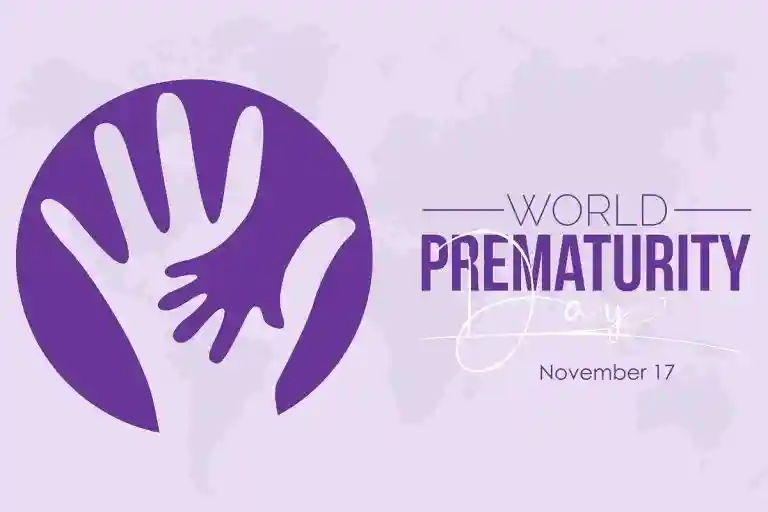As the city continues to witness hot and humid weather, paediatricians said they are noticing an unusual rise in the number of viral infection cases among children, especially diarrhea, which is one of the causes of dehydration
Paediatrician Dr Bijal Srivastava said, “Acute diarrhoea in children has gone up in the last few weeks. We recently treated an infant with severe diarrhoea who was hospitalised because of dehydration. His stool was positive for rotavirus.”
Rotavirus is a virus that spreads easily among infants and young children. The virus can cause severe watery diarrhoea, vomiting, fever, and abdominal pain.
Dr Srivastava added that most of the diarrhoea cases in children that the team of doctors are seeing today are viral in origins such as norovirus, astrovirus, and adenovirus. She also noted that the most common and also the worst is rotavirus as the frequency of passing stools is too high and many have to be hospitalised due to dehydration.
While viral diarrhoea is self-limiting, doctors said that the recovery timing for children is around a week.
Dr Vishal Parmar, paediatrician, Wockhardt Hospitals, Mira Road said diarrhoea cases are commonly seen in children less than five years of age. “Most of these are viral diarrhoea cases. Very few of them are because of bacterial infections. We have to hospitalise the child if the diarrhoea is causing severe dehydration. Daily, we are seeing 5 to 10 cases of diarrhoea in children in our outdoor patient department.”
He said with all Covid-19 restrictions being lifted accompanied by people socialising more because of festivals and comparatively hotter summer, the diarrhoea cases in children are more in the last two years.
Dr Suresh Birajdar, said they are seeing diarrhoea cases commonly in infants and kids attending day-care or preschool.
“The severity of diarrhoea is more in the younger age group and children with less weight. During the lockdown, contact of kids with other kids was less, travel was less, people didn’t eat outside food, so chances of food contamination were less, and everyone was taking precautions even following hand hygiene. All of these have led to lesser cases of diarrhoea. Now, things are moving back to normal. So, we are not only witnessing diarrhoea but other infections like respiratory tract and skin infections,” he said.
Dr Purshottam Vashistha has been seeing at least two patients with gastroenteritis every day, at least one of them is a child. “Most common complaints of patients are diarrhoea and food poisoning. Most of these patients find immediate relief after symptomatic treatment and adequate hydration. Rarely do patients who suffer severe dehydration need admission and active treatment. People are advised to avoid eating or drinking out at unhygienic places and carry a bottle of water with them to avoid dehydration. Children should carry water bottles from home and strictly drink boiled water,” he advised.
Mumbai-based paediatricians are also seeing a rise in hand, foot and mouth diseases caused by viruses. Dr Vaidehi Dande said she is seeing 2-3 cases daily in her consultation and said, “Hand, foot and mouth disease is a highly contagious infection and spreads easily. The outbreaks are seen every year, especially in early summer. During this season, cases continue to rise exponentially till a large part of the susceptible population is infected.”
She added that parents whose children get affected by hand, foot and mouth disease need not worry as the infections last for a maximum of four days. “However, a few precautionary steps should be followed by the parents, like keeping your child hydrated, immediately consult your doctor to get itch relieving medicines. Parents need to be aware and careful of signs like- high grade and prolonged fever, drowsiness, decrease in urine frequency and difficulty in breathing. An infected child should be kept inside the home and away from other children, especially till the time lesions get dried as it is infectious is important during this time,” said Dr Dande.
Dos and Don’ts for parents
Keep your child hydrated
Avoid giving children outside food and give a healthy nutritious diet
Give ORS solution if the child has loose motions to avoid dehydration
Precautions and advice:
Practising good hygiene is the best defence against HFMD. Regular hand washing can greatly reduce your risk of getting this virus.
You can teach your children how to wash their hands using hot water and soap. Washing your hands after using the restroom, before eating, and after being out in public is important.
Children should also not put their hands or other objects in or near their mouths.
It’s important to disinfect any common areas in your home on a regular basis. Try cleaning shared surfaces first with soap and water, then with a diluted solution of bleach and water.
You should also disinfect toys, pacifiers, and other objects that may be contaminated with the virus.
If you or your child experience symptoms such as a fever or sore throat, stay home from school or work. It’s best to avoid contact with others once the blisters and rashes develop. This can help you avoid spreading the disease to others.
Dr Vishal Parmar
Consultant – Paediatrician
Wockhardt Hospitals, Mira Road












